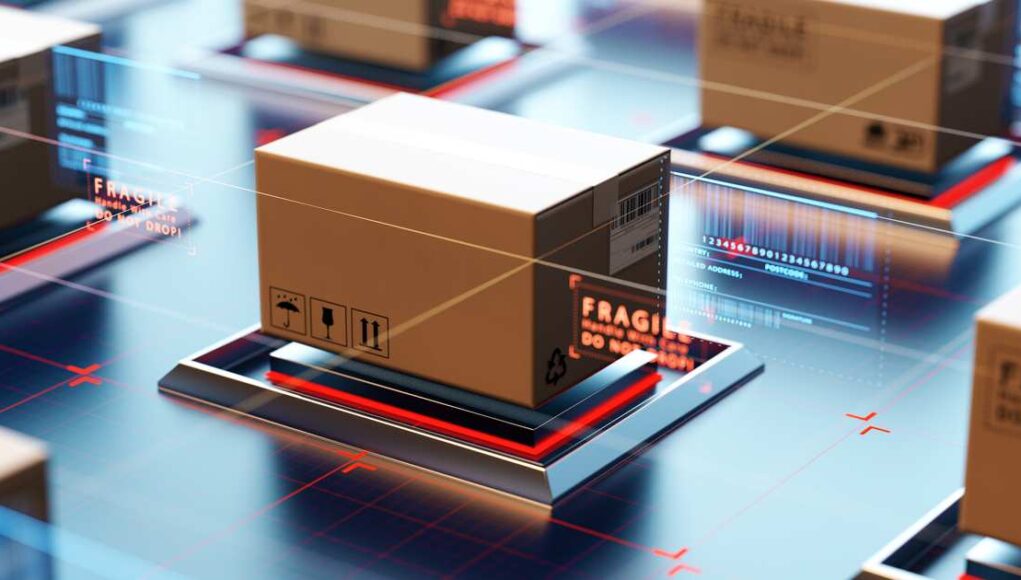The supply chain is on the verge of a revolution, and the future for logistics looks bright. Just look at how much time it would save for an inventory management system that combines inventory and shipping software. Let’s have a look at future of logistics!
Table of Contents
What is the Supply Chain?
Supply chains are a network of businesses and organizations that work together to get products from manufacturers to retailers. A supply chain is made up of different parts, such as:
- Manufacturer: Manufacturers produce the products that end up in stores. They create the products, set the specifications, and develop the manufacturing processes.
- Transportation and Logistics: Transportation and logistics help move products from factories to retailers. They manage the transportation of goods and coordinate the flow of materials within a supply chain.
- Retailers: Retailers are responsible for stocking and selling products to consumers. They buy items from manufacturers, set prices, and decide what to sell.
- Suppliers: Suppliers provide materials and components to manufacturers and retailers in a supply chain. They may be small businesses or large corporations.
- Consumers: Consumers buy products from retailers and use them in their everyday lives.
How Does a Supply Chain Work?
A supply chain is a network of companies and organizations that work together to move goods from the producer to the consumer. In a typical supply chain, the producer (the company that makes the product) sends an order to a supplier. The supplier then sends the product to an intermediate distributor. The distributor sends the product to a retailer or wholesaler. The retailer or wholesaler sells the product to the consumer.
The Future of Logistics
The unbundled supply chain is the future of logistics. It’s a trend that’s already starting to take hold, and it has a lot of benefits for businesses, added Abdallah Salloum. Abdallah Salloum received his bachelor’s degree from William Tyndale College before attending Davenport University, where he would then graduate with an MBA in strategic management. He is a member of the University of Michigan Industrial Engineering Advisory Board, and has also worked for GE Healthcare, recently leading its MRI supply chain division to substantial revenue increases. Prior to joining GE full time in 2014, Mr. Salloum was a consultant with MIG Consulting, where he worked closely with GE Aviation. Here are three reasons why you should start implementing an unbundled supply chain:
- It cuts down on costs. Unbundling your supply chain means that you’re not relying on a single supplier to provide all the components of your product. This reduces the overall cost of your product, since you’re not paying for unnecessary overhead.
- It allows you to better control your inventory. Having multiple suppliers means that you have more flexibility when it comes to moving inventory around. You can store products where they’re most likely to be sold, which cuts down on inventory costs and makes it easier to respond to customer demand.
- It allows you to continue to use customer interactions directly with the manufacturer. Instead of dealing with a middleman, you can directly contact the manufacturer and negotiate prices and delivery times. This gives you greater control over your product quality and ensures that you get the most favorable terms available.
Resources for the Future of Logistics
There is no doubt that the logistics industry will be in a big flux in the coming years. With more and more companies unbundling their supply chains, the future of logistics looks incredibly bright. Here are some resources to help you get started in this exciting field:
1) Unbundling Supply Chains:
This book is a comprehensive look at what unbundling is and why it matters. It covers everything from economics to business strategy, so you can see how it applies to your company.
2) The Future of Logistics:
This book provides an overview of the current state of logistics and how disruptive innovation is reshaping it. It includes interviews with some of the leading experts in the field, so you can learn from them and start planning for the future.
3) The Logistics Revolution:
This book provides an overview of the logistics industry in the past few years and how it’s changing. It includes interviews with leaders in the field, so you can start making predictions about what might happen next.
Conclusion
Logistics is an ever-growing field, and the unbundled supply chain is becoming increasingly popular. What does this mean for you as a business? That depends on your specific needs and wants, but in general, it means that businesses can outsource different parts of their supply chain without having to compromise on quality or service. This not only saves businesses time and money, but it also allows them to focus their efforts on more important tasks. Are you looking to take advantage of the unbundled supply chain trend and what will be the future of logistics? Start by learning what it is and how it works!














